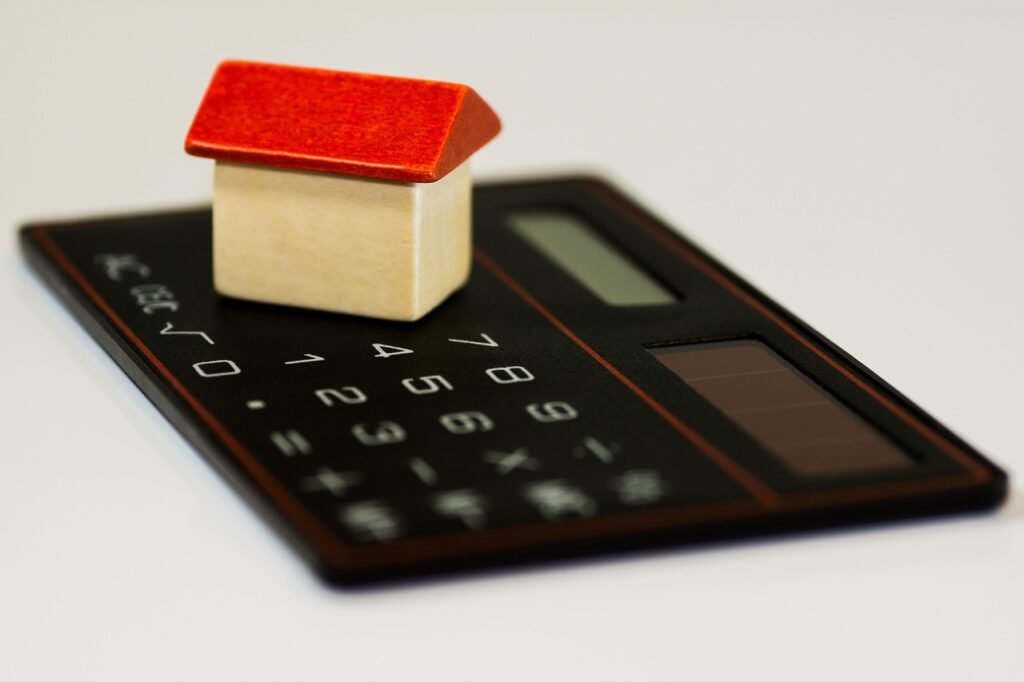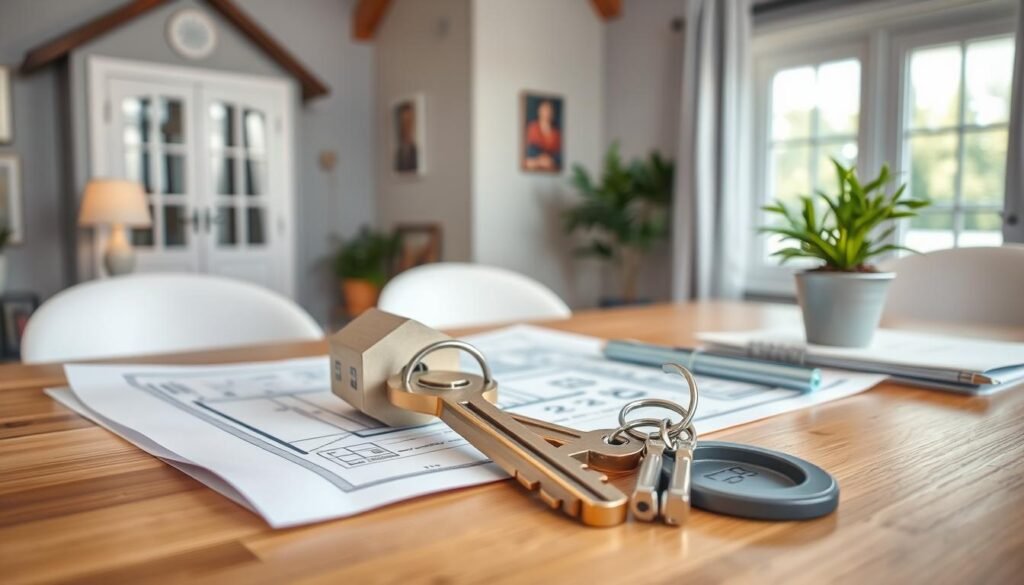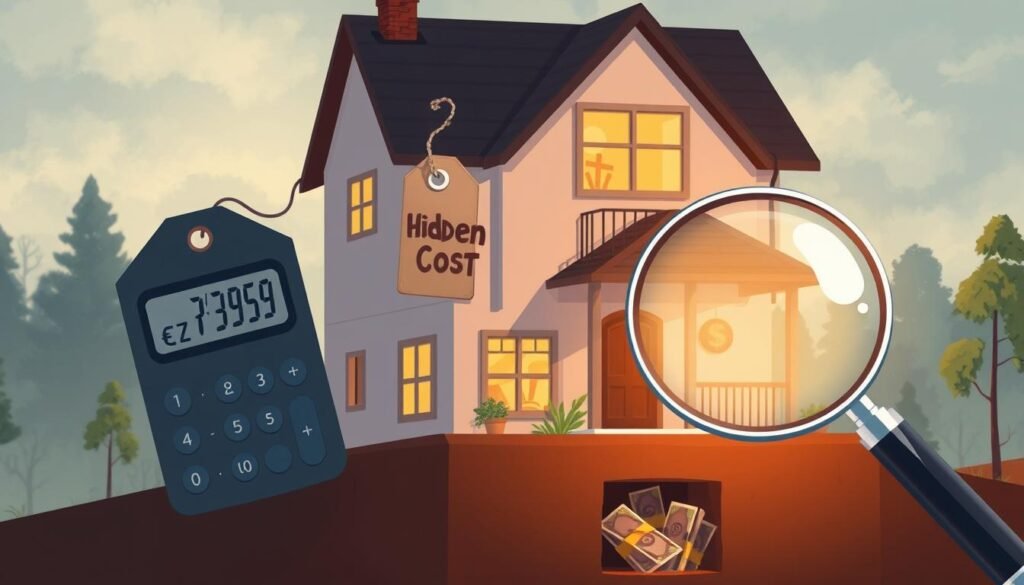This post may contain affiliate links, which means I may earn a commission if you purchase through these links at no extra cost to you.
I know how exciting—and let’s be real, a little overwhelming—the journey to buying your first home can be. I’ve been there, too. Whether you’ve just started thinking about homeownership or you’re already deep into Zillow scrolls and open house tours, this guide is here to help you confidently navigate every step of the mortgage process in 2025.
Real estate and financing is constantly changing, and as a personal finance enthusiast and real estate pro, I’ve made it my mission to break it all down in simple, relatable terms—no jargon, no fluff, just real advice.
In this post, I’m sharing everything you need to know to get mortgage-ready this year: from boosting your credit score and choosing the right loan, to understanding the hidden costs and locking in the best deal. I’ll also link to other helpful posts and share a few trusted tools and services that can make your homebuying experience a whole lot smoother (and maybe even save you money).
Are you ready to take the first step toward getting those keys in your hand? Let’s dive in—and don’t forget to grab your free copy of my Ultimate Financial Starter Kit to help you stay organized along the way!
Table of Contents
ToggleUnderstanding the Mortgage Basics

Before you start house hunting, it’s super important to understand exactly what a mortgage is and how it works. I like to think of it as a long-term partnership between you and a lender—one where you borrow money to buy a home and agree to pay it back over time, with interest. Sounds simple, right? But there are quite a few moving parts, so let’s break it down.
What Is a Mortgage?
A mortgage is a type of loan used specifically to purchase a home. When you take out a mortgage, you’re essentially promising to repay the loan over a set number of years—usually 15, 20, or 30—plus interest. Until the loan is fully paid off, your lender technically owns the home, and you gradually build equity as you make payments.
The Main Types of Mortgages
There isn’t a one-size-fits-all mortgage, and choosing the right type can save you thousands over the life of your loan. Here are the most common options:
-
Conventional Loans – These aren’t backed by the government and usually require a higher credit score and a larger down payment.
-
FHA Loans – Backed by the Federal Housing Administration, these are great for first-time buyers with lower credit scores and smaller down payments. (P.S. We’ll dive deeper into FHA loans later in this guide!)
-
VA Loans – For qualified veterans and active military members—no down payment required.
-
USDA Loans – For homes in eligible rural areas, often with no down payment.
-
Adjustable-Rate Mortgages (ARMs) – Start with a lower interest rate that adjusts over time.
-
Fixed-Rate Mortgages – The interest rate stays the same for the life of the loan, offering stability and predictability.
If you’re unsure where to start, check out Sofi’s Home Loans —they offer a variety of mortgage options with competitive rates and a super user-friendly online application process. It’s a great place to compare your choices and see what might work for your situation.
🔗 Want to learn more? Head over to my post on Your Guide to Affordable Home Financing to get a deeper breakdown of each option.
Getting Your Finances in Order

Let’s be real—before you can get the keys to your dream home, you’ve got to make sure your financial house is in order. This is one of the most important steps in the homebuying journey, especially if you’re aiming for a smooth mortgage approval process. And the good news? It’s totally doable with the right plan. Here’s how to get financially ready to buy a home in 2025:
Know Where You Stand: Check Your Credit Score
Your credit score can make or break your mortgage deal. Lenders use it to decide not only if you qualify, but also what interest rate you’ll get. A higher score = lower interest = big savings over time.
Here’s a general breakdown:
-
740 and up – Excellent: You’ll get the best interest rates.
-
700–739 – Good: Still solid and likely to qualify with decent terms.
-
620–699 – Fair: You might qualify, but interest rates could be higher.
-
Below 620 – Consider working on your credit before applying.
If you’re not sure where you stand or want help improving your score, I highly recommend checking out Experian Credit Monitoring. It’s a great tool to track your progress, get alerts, and access personalized tips to boost your score.
Need extra help building credit? Read this next:
👉 Credit Building Tips for First-Time Buyers
Start Saving for a Down Payment (and Other Costs)
Let’s talk savings. Most people think they need 20% down to buy a home, but that’s not always true. Depending on your loan type, you might qualify with much less:
-
Conventional Loan – As little as 3–5% down
-
FHA Loan – Just 3.5% down (we’ll cover FHA loans soon!)
-
VA or USDA Loan – 0% down for qualified buyers
But that’s just the beginning—you’ll also need to budget for:
-
Closing costs (usually 2–5% of the home price)
-
Home inspections & appraisals
-
Moving expenses
-
Furniture & appliances
-
An emergency fund for repairs and maintenance
If budgeting for all these extras feels overwhelming, don’t worry—I’ve put together a helpful breakdown in this post:
👉 Budgeting for the Hidden Costs of Homeownership
Gather Your Financial Documents
When it’s time to apply for a mortgage, your lender will want to take a deep dive into your finances. Be prepared to show:
-
Recent pay stubs
-
W-2s or 1099s
-
Tax returns (past 2 years)
-
Bank statements
-
Proof of any assets (retirement accounts, investments, etc.)
-
ID and Social Security number
Pro tip: The more organized you are, the faster the process will go—and the more confident your lender will be in approving your loan.
Lining up your finances might not be the most exciting part of buying a home, but it is one of the most powerful steps you can take. The effort you put in now will pay off big time once you’re ready to apply and negotiate your mortgage.
Pre-Approval vs. Pre-Qualification: What’s the Difference?
If you’re like most first-time buyers, you’ve probably heard both terms thrown around a lot—pre-approval and pre-qualification—but they’re not the same thing. And trust me, knowing the difference can save you time, stress, and maybe even help you land your dream home in a competitive market.
Pre-Qualification: The Warm-Up
Think of pre-qualification as a casual conversation with a lender. You provide some basic info about your income, assets, and debts—usually online or over the phone—and the lender gives you a ballpark estimate of how much you might be able to borrow.
Pros:
-
Quick and easy
-
No impact on your credit score
-
A good starting point if you’re just beginning
Cons:
-
It’s not a guarantee
-
It’s based on unverified information
-
Sellers don’t take it as seriously as pre-approval
Pre-Approval: The Real Deal
Pre-approval is a much more official step—and it carries a lot more weight. You’ll complete a mortgage application and provide documentation (like pay stubs, tax returns, and bank statements). The lender will pull your credit and issue a letter stating how much you’re approved to borrow.
Pros:
-
Gives you a clear budget
-
Shows sellers you’re serious (this is a must in competitive markets!)
-
Can speed up the closing process
Cons:
-
Requires a credit check (small impact on your score)
-
More paperwork upfront
📌 Pro Tip: Always aim to get pre-approved before you start house hunting. It not only gives you an edge with sellers, but it also helps you focus on homes within your actual budget.
Need help getting organized for this step? Check out my post:
👉 Home Loan Pre-Approval Checklist
Once you’re pre-approved, you’re ready to house hunt like a pro—and confidently compare loan offers.
Choosing the Right Lender

Not all lenders are created equal—and choosing the right one can save you thousands over the life of your mortgage. I always tell first-time buyers: you’re not just shopping for a home; you’re also shopping for the best possible loan.
The lender you choose will impact your interest rate, loan options, fees, closing experience, and even how smoothly your homebuying process goes. So it’s worth doing your homework here.
What to Look for in a Mortgage Lender
Here are a few key things to compare when shopping for lenders:
-
Interest rates – Even a fraction of a percent can make a huge difference over 30 years.
-
Loan products offered – Not every lender offers FHA, VA, or USDA loans.
-
Down payment requirements – Some lenders are more flexible than others.
-
Customer service & communication – You want a team that responds quickly and clearly.
-
Pre-approval process – Look for a streamlined and digital-friendly application process.
-
Closing costs & fees – Ask for a Loan Estimate so you can compare apples to apples.
Recommended Lenders to Explore
Here are a few trusted options worth considering:
🔗 SoFi Home Loans
I love SoFi for first-time buyers because their platform is simple to use, their rates are competitive, and they offer a fully digital experience. You can check your rate with no impact on your credit and even get pre-approved in minutes.
🔗 Federal Housing Administration (FHA)
If you’re working with a smaller down payment or lower credit score, FHA loans can be a great option. You’ll need to work with an FHA-approved lender, so be sure to ask if this is something they offer.
Want to dig deeper into loan types and which is right for you? Check out:
👉 FHA Home Loans Explained
Questions to Ask Potential Lenders
Before choosing your lender, hop on a quick call or send an email with these questions:
-
What types of mortgage loans do you offer?
-
What’s your current interest rate for a [30-year fixed / FHA / etc.] loan?
-
What are your lender fees?
-
Can I get a Loan Estimate today?
-
How long is the pre-approval valid?
-
What’s your average closing time?
Getting answers to these questions will help you compare and feel confident about your choice.
Pro Tip:
Don’t just talk to one lender—get quotes from at least three. That way, you can negotiate and choose the best fit for your needs.
Once you’ve chosen your lender, you’re ready for the fun part: house hunting!
Legal Considerations for Homebuyers
Buying a home is exciting, but it’s also a legal transaction—with contracts, deadlines, disclosures, and fine print that can seriously impact your rights and responsibilities as a homeowner.
Don’t worry, you don’t need a law degree to get through the process. But you do need to know what to watch for and when to bring in a professional.
Understand the Sales Contract
The purchase agreement (also called a sales contract) lays out everything you and the seller are agreeing to—including:
-
Purchase price
-
Closing date
-
Contingencies (like financing, inspection, and appraisal)
-
What stays with the home (appliances, fixtures, etc.)
This is a legally binding document, so don’t just skim it. Make sure everything looks right and ask questions if anything seems unclear.
Disclosures & Inspections
Sellers are usually required to disclose known issues with the property—like foundation problems, roof damage, or past flooding. But it’s still up to you to protect your investment.
That means ordering a professional home inspection to uncover any hidden issues before you finalize the deal.
Tip: If the inspection turns up anything big, you may be able to renegotiate the price or ask for repairs.
When to Consult a Real Estate Attorney
In many states, you’re not required to hire a real estate attorney—but it’s often a smart move, especially if:
-
You’re buying a home with title issues or legal disputes
-
It’s a For Sale By Owner (FSBO) transaction
-
You’re dealing with a complex contract
-
You just want peace of mind!
If you want trusted legal guidance, I highly recommend checking out Nolo Legal Services for Homebuyers. They make it easy to find real estate attorneys and legal resources that fit your needs and budget.
Title Search & Title Insurance
Before you close, a title company will perform a title search to make sure there are no legal claims or liens on the property. You’ll also need to purchase title insurance, which protects you and the lender in case anything was missed during that search.
This is one of those behind-the-scenes steps that most buyers overlook—but it’s critical to protecting your ownership rights.
Pro Tip:
If anything feels confusing or you’re unsure what you’re signing—pause and ask. There are no dumb questions when it comes to protecting your biggest investment.
Homeowners Insurance: What You Must Know

Once you find your dream home, you’ll need to protect it—and that’s where homeowners insurance comes in. It’s more than just another monthly cost; it’s your financial safety net if something unexpected happens.
Let’s break down what every new homeowner should know about insurance in 2025.
What Does Homeowners Insurance Cover?
Most standard policies protect you against:
-
Damage to your home from fire, storms, theft, or vandalism
-
Personal belongings inside the home
-
Liability if someone is injured on your property
-
Additional living expenses if you’re temporarily displaced
There are different coverage levels and add-ons, but at its core, homeowners insurance is about protecting your investment and peace of mind.
How Much Does It Cost?
The average annual premium in the U.S. falls between $1,000 and $1,500, but it can vary based on:
-
The value and location of your home
-
Deductible amount
-
Coverage level
-
Security systems and safety upgrades
-
Local weather risks (flood zones, wildfires, etc.)
Pro Tip: Bundle & Save
Many providers offer discounts if you bundle your home and auto insurance. It’s worth asking about package deals that can save you hundreds each year.
Why I Recommend Liberty Mutual
I always suggest comparing quotes from a few trusted companies, but Liberty Mutual stands out for first-time buyers. They offer customizable coverage, solid customer service, and tools that help you understand your policy without the jargon.
You can get a quote quickly, and they make it easy to tweak your coverage based on your needs and budget.
Don't Forget These Extras
Depending on where you live, you may also need:
-
Flood insurance (not usually included in standard policies)
-
Earthquake coverage
-
Home warranty (covers appliances and systems, not the same as insurance)
Your Lender Will Want Proof
Before you close on your home, your lender will require proof of homeowners insurance. So don’t wait until the last minute—start comparing policies once you’re under contract!
Closing the Deal: What to Expect

You’ve made it through house hunting, inspections, and paperwork—now it’s time to close the deal and officially become a homeowner! 🎉
This final stage is exciting, but it can also feel a little overwhelming if you don’t know what to expect. Here’s a breakdown of how closing works and how to make the process as smooth as possible.
What Is Closing Day?
Closing day is when all the final documents are signed, the funds are transferred, and the home officially becomes yours. It usually happens at a title company, attorney’s office, or sometimes virtually depending on your state.
What You’ll Review & Sign
At closing, you’ll be signing several important documents, including:
-
Closing Disclosure (CD) – Outlines your loan terms, interest rate, closing costs, and monthly payments
-
Promissory Note – Your agreement to repay the loan
-
Deed of Trust or Mortgage – Gives the lender a claim against the home if you don’t repay
-
Title Documents – Confirm legal ownership is being transferred to you
-
Loan Documents – Final versions of your mortgage paperwork
👉 Pro Tip: Review the Closing Disclosure at least 3 days before closing. It’s your chance to make sure everything matches what your lender promised.
What You’ll Pay
Expect to bring your closing costs to the table. These usually total around 2–5% of the purchase price, and may include:
-
Lender fees
-
Appraisal fee
-
Title insurance
-
Prepaid taxes and insurance
-
Attorney fees (if applicable)
-
Recording fees
You’ll typically wire the funds or bring a certified check made out to the title or escrow company.
When Do You Get the Keys?
Once everything is signed and the funds have cleared, you’ll get your keys! In some cases, this happens the same day. In others, you may need to wait until the next business day.
Add Your Heading Text Here
Closing can feel like a whirlwind, but don’t rush through it. Take your time, ask questions, and don’t be afraid to pause if something doesn’t look right. You’ve come this far—make sure it ends on a solid, stress-free note.
Protecting Your New Home

You’ve done all the hard work—saved, planned, and finally closed on your home. Now it’s time to protect your investment and your peace of mind. 🏡✨
Whether it’s your first night in the house or you’ve already moved in, home security should be a top priority. It’s not just about protecting your stuff—it’s about protecting your people and creating a safe, comfortable place to live.
Why Home Security Matters
Home security systems are more advanced—and more affordable—than ever. In fact, having a monitored security system can:
-
Deter potential break-ins
-
Lower your homeowners insurance premium
-
Alert you to smoke, carbon monoxide, or water leaks
-
Let you monitor your home remotely (great for travelers or busy families!)
Smart Security for Modern Living
In 2025, home security isn’t just a keypad by the door—it’s a whole ecosystem of smart devices working together to keep you safe, including:
-
Doorbell cameras (see who’s at the door anytime)
-
Smart locks (lock or unlock remotely)
-
Motion sensors and glass break detectors
-
24/7 professional monitoring
-
Mobile apps for real-time alerts
Why I Recommend SafeStreets
If you want a system that’s both powerful and easy to use, I recommend checking out SafeStreets—a trusted ADT Authorized Provider.
They offer top-tier home security packages with:
- Professional installation
- 24/7 monitoring
- Smart home integration
- Flexible packages for every budget
🔗 Explore SafeStreets Home Security Options
You can customize your system and get expert recommendations based on your home’s layout and your lifestyle. It’s a simple way to start feeling safe from day one.
A Secure Home is a Happy Home
You don’t need a fortress—you just need the right tools in place to keep your home and loved ones safe. Even basic upgrades like better lighting, a video doorbell, and a “This home is monitored” sign can go a long way.
Final Thoughts + Next Steps
Whew—you made it! If you’ve read this far, you’re already way ahead of the game. Buying a home, especially for the first time, can feel like a lot. But the fact that you’re taking time to learn, prepare, and plan puts you in the best possible position for success.
I hope this post has helped you feel more confident about what’s ahead. From building your credit to choosing the right lender, understanding FHA loans, and protecting your new home—every step matters.
Here’s What to Do Next:
- Start comparing mortgage lenders – I recommend checking out SoFi Home Loans for fast, flexible options tailored to first-time buyers.
- Get your legal bases covered – Need help reviewing your purchase agreement or dealing with real estate disclosures? Nolo offers affordable legal resources for homebuyers.
- Protect your new investment – Grab a quick quote from Liberty Mutual for homeowners insurance.
- Boost your credit before applying – Use Experian to monitor and strengthen your credit score.
- Secure your home from day one – I trust SafeStreets to provide smart, professional security systems for peace of mind.
You’ve Got This
Buying your first home is a big deal—but you’re not doing it alone. Keep learning, ask lots of questions, and trust yourself. You’re building a foundation not just for your future home—but for your future self.
Here’s to smart decisions and happy new beginnings.
I’d Love to Hear from You
Got questions? Stuck on a certain step? I’m here to help. Drop a comment.



